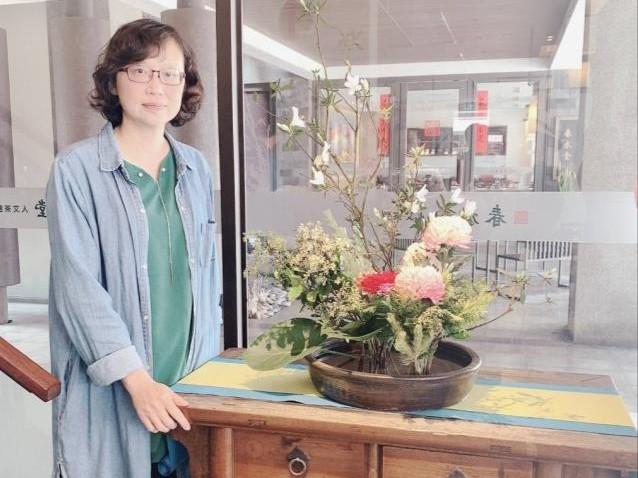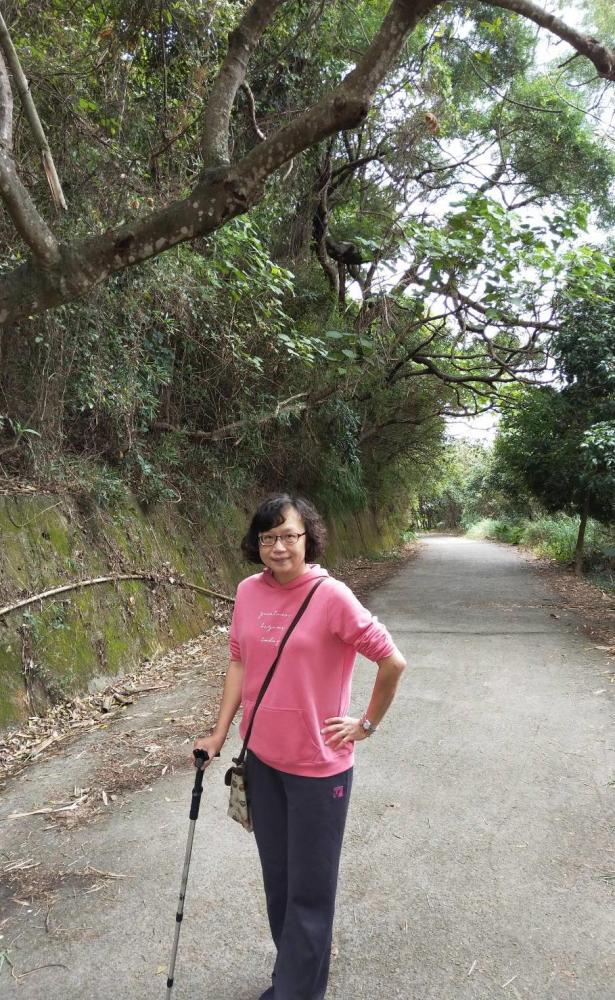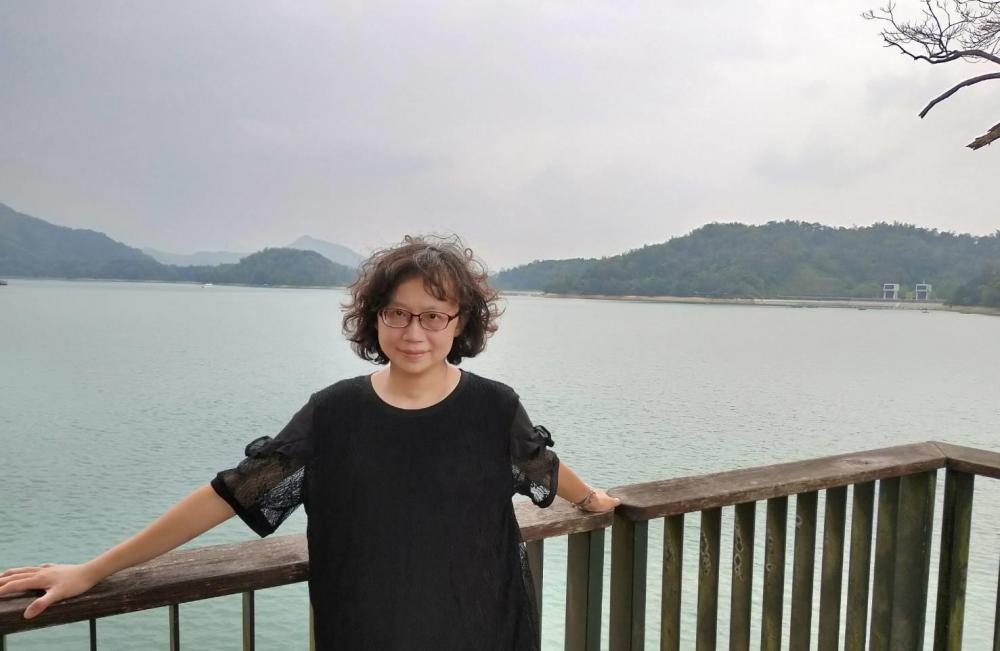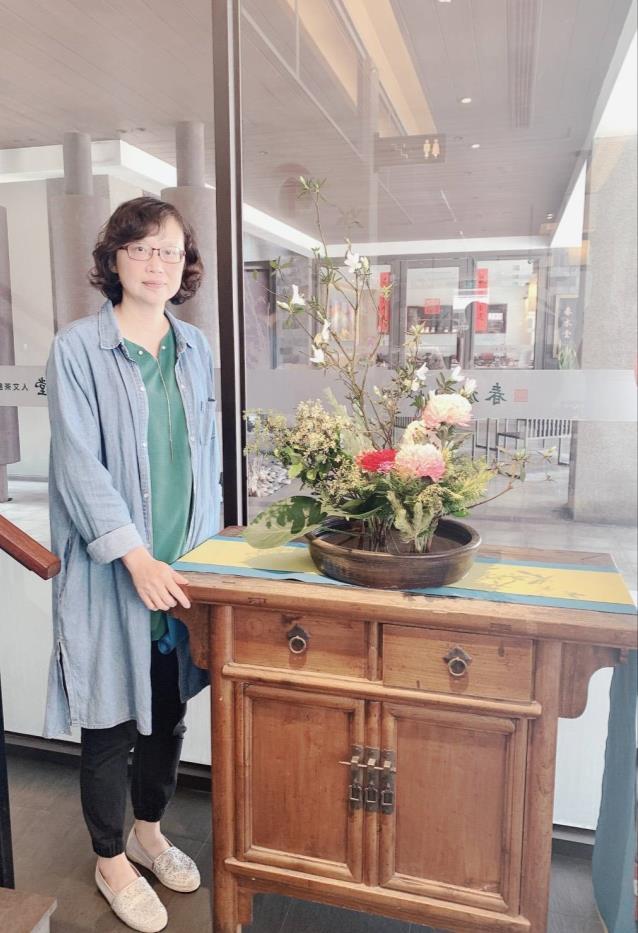






Don’t Underestimate Yourself; Prove Your Theory in Practice

Exclusive Interview
Stella Matutina Social Welfare Foundation
Li Hua, Hsiao social worker
Q:How long has it been since you became a social worker (or started working in this field)?
Which section did you work at? During your career as a social worker, are there any memorable situations?
A:Having majored in nursing during college, I have one year of clinical practice experience. I wanted to continue in a study that can enhance the wellbeing of human, so I decided to transfer to the Department of Youth and Child Welfare at Providence University. Upon graduation, I wanted to find a job that requires medical background, and so I secured a job as a medical social worker at the Chang Gung Memorial Hospital, Linkou. Afterwards, I got married and joined my husband to work in Taichung, where I started working as a school counselor. After I left school, I got to know the Stella Matutina Social Welfare Foundation. At that time, the nuns at the foundation were planning services for the elderlies as Taiwan was gradually becoming an ageing society then. As a result, I had the opportunity to get involved in the field of elderly care, and since then, I have devoted myself to home care services.
During my time as a medical social worker at the Department of Child Cancer, I witnessed many deaths. For example, when pediatric patients cannot be cured, their parents often cannot accept the situation, they will ask the doctors to save their child but usually their efforts are in vain. There was once a child who had Leukemia, he had undergone treatment for a very long time. His dream is that one day he can go abroad, so we connected with Make-A-Wish to help him fulfill his dream. With the help of doctors and many other people, the child’s dream came true and he finally went abroad.
However, after the child returned to Taiwan, his condition got worse. We were not familiar with hospice care then, but the medical team discussed with the child’s parents whether or not to let the child die peacefully. To do so, the team will mitigate the pain and give the parents a chance to spend time with the child during the last days of his life.
Another thing that has a deep impression on me, is that when the parents found out that the child has cancer, they will face financial and psychological pressure. This is when social workers are needed to calm the emotions of the parents and to understand what their concerns are. In the meantime, we have to understand the conditions and chances of the child by discussing with the medical team. We worry that the parents will give up treating the child if their financial ability does not allow them to do so. Hence, it is the social worker’s job to link the family with financial aid resources and patient groups. Without health insurance, it costs a lot to stay in the intensive care unit even with financial subsidy. Some families even have to have their house sold in order to pay for the cost of treatment.
During my time as a school counselor, I’ve had students who had depression, and who continuously wanted to suicide. I was under immense pressure then, and I wanted to find the student some support in school such as classmates and friends to accompany him. Most important of all, the school counselor must tell the parents that their child has depression, and that they must seek professional medical attention. It is also the counselor’s duty to check and see if the student did receive treatment. Luckily, after six months or so, the student’s condition became a lot better.
Q:The 921 Earthquake caused devastation in the central parts of Taiwan. What happened during that period that was especially unforgettable to you?
What do you think has changed about social work after the incident?
A:Soon after I started working at the Stella Matutina Social Welfare Foundation, there was the 921 Earthquake. Whenever there is a disaster, it is the church’s job to give help to those affected. Aside from fundraising, we also built a family reconstruction center at Caotun. Social workers must visit the victims and understand what they need, and to pass the information to government officials. Social workers must also give lectures at the post-disaster service center to link resources and to help victims heal. Many victims lost their houses and family members, causing trauma and confusion, it is therefore not easy for them to adapt and restart their lives. After this incident, I understood the lifestyle of compound houses, and that it takes nearly four years for life to go back to normal.

The so-called “socialization” concept. Before the 921 Earthquake, when people were more conservative. For example: People used to believe that the poor need only apply for low-income subsidy. However, after the 921 Earthquake, a lot of problems emerged, such as those related to children, elderlies, and the poor. These problems cannot be solved by compound houses. As a result, the government needs to enforce the welfare socialization. The government cannot afford to spend too much on human resources to solve problems within communities, so it is crucial that the government change the way in which services are provided, that is how multiple service options emerged. After the reconstruction is complete, many social problems still remain. Many social services are thus taken over by non-government organization. These organizations form a network to work together and establish partnerships to help individuals. Concepts such as “community care, individual care, quality and responsibility of option services” emerged. These concepts require the help of professional social workers. Having a society that values social work and its development as well as the needs of social welfare are the effects of the 921 Earthquake.

Q:During your career as a social worker, have you ever felt defeated or faced adversity? How did you overcome them?
A:It is normal to feel depressed sometimes when working, for example when facing difficult cases or being affected by negative emotions. Often times I feel helpless. I believe the most important thing to do is to adjust your mindset. Personally, I will seek help such as taking counseling or self-care classes. There was once a counselor who told me, “social worker is not a God, one cannot expect a social worker to solve all problems,”. We have to know our limits, as cases can be complicated. If you are helping an individual who has depression, and that individual ends up killing themselves, then the social worker must bear in mind that this is not their fault, and it is vital to accept that a social worker has limits and cannot solve everything.
After 5 to 6 years working at the Stella Matutina Welfare Foundation, I became a supervisor. Later, I went to graduate schools and came back to become a manager for the long-term care services. This role greatly differs from my previous one, I have to guide and supervise my colleagues and make sure good results and qualities are delivered. The change in my roles have brought upon helplessness. For example: One must understand how to make employees accept one’s idea so that employees will work with the organization’s best interest at heart. Understanding the philosophy of management is also crucial. It is normal for employees to quit, but for the organization, the time and human resources devoted into training an employee would be in vain. There was once an employee who quit right after his/her training was complete, and the organization can do nothing but accept the situation. It can be pretty tough for a manager to face these changes and development.
Senior care service developed from version 1.0 to version 2.0. Now the government is making changes on a rolling basis. It is a tough task for managers to adapt. During the assessment, we have to present our best grades, and even if we accomplished our KPIs, we’re asked to do better next time. As a manager, I have to endure all these pressure. In cases as such, I’ll chat with my friends and other managers, and I’ll avoid giving too much pressure on my team. Persuading your manager can also be stressful. However, if we believe we have already done our very best, then I’m not entirely responsible for the results, that is to say, subjective and objective factors are what affects the results.

Q:Many people say that it is hard to continue working as a social worker, which also resulted in age gap (few middle-aged workforce).
How do you perceive this situation? Can you share with us how you maintain the passion and motivation to work?
A:Regarding my current organization, senior employees typically have 20 years of job experience, middle-age employees typically have around 10, while new employees are constantly changing. Nowadays, there are many different kinds of job opportunities, and young employees often stay for 2 to 3 years after switching to another job. I believe an organization should focus on creating a clear career ladder. In most cases, the position of supervisors and managers are often scarce, and entry level employees may only get promoted when someone retires. This means that the career path is not clear, as a result, we encourage employees to stay in their position and try some challenging and innovation approaches. Even though job promotion may not come quickly, the efforts of the employee will still be seen by the managers, who will provide bonus and encourage them to take career training courses, from which the employee will be able to learn new skills that can be introduced to the organization. Since working one’s way up the career ladder is difficult, it is imaginable that many would want to seek other jobs. However, I suggest young employees to think about what they really want and what they hope to achieve in their career when considering a job switch. Try to find your strength and accumulate experiences through every job. Avoid changing jobs for no reason because if you do so, you wouldn’t be able to accumulate your experience nor will you be able to gain deeper knowledge and know-how in your field.
I consider myself as a dynamic person. I like to lay my hands on many different things. Before I became a manager, I like to challenge myself to different tasks. By designing multiple service plans, I strive to achieve high quality and to understand the needs of each individual. I also developed many interest outside my profession. I learn new skills then introduce them to the organization, for example, browsing articles or literature reviews. In my free time, I enjoy playing the piano. I also play the piano when I feel depressed and I sometimes give lessons to children. I believe it is essential that one has hobbies. Hobbies can cultivate one’s soul and kill time. It will seem increasingly important to have hobbies when you retire and your children leave home. Now, despite how stressful my job is, I still attends music lessons. Sometimes when I’m under pressure, I’ll also read books to learn things outside of my profession or just play some music and light up the candles to relax myself.
Q:In 1997, the Social Worker Act was enacted, setting a milestone in the field of social work.
What do you think are the effects of professionalizing social work? What has changed in your career?
I believe is necessary to enact the Social Work Act. In the past, many people think social worker equals volunteer, and often have no idea as to what social workers do. People only think of social workers when incidents such as child abuse happens. From this, we can see that social workers are not wildly understood and valued by our society. As more and more social issues emerge, more social workers are needed to ensure a peaceful society. Many high-risk issues such as The Neihu killing, reflects the safety problem that our society still has. The government would need to make precautions by sending more social workers. As a result, the society would need more social workers in the future. The Social Work Act can clearly define the roles of this profession, and examination can also help acknowledge this profession. Only certain undergraduate degrees are qualified to take the exam. Many organizations also give bonuses to those who have passed the exam. To work for the government, it is necessary to pass the exam. As a result, enacting the Social Worker Act is a vital process in professionalizing this job.
Q:There are around ten schools/degrees related to social work in central Taiwan.
What do you think about the current education given to train students who wish to work in this field?
I believe the school should focus more on practical knowledge. I would suggest that in the first and second year, student learn basic skills, or consult a social worker to understand what roles social workers play in our society. It is also important to encourage students to face the different aspects of social work so as to fully understand this profession.

Q:During the past couple of years, many social and political changes have happened in central Taiwan, including party alternation and the merger of country.
How do you think these changes have affect the role or welfare of social workers?
In the elderly care service sector, senior care version 1.0 and 2.0 are constantly changing. As a social worker, I often have to face changing policies, for example, the terminology in individual service is forever changing. I believe this is for a good cause. Senior care version 2.0 has brought along many changes to the industry, which attracted more people to devote themselves in this job. Before version 2.0 rolled out, there was only 22 service sectors, but after version 2.0 was introduced, there are now 70 to 80 sectors. This is indeed a good news for both individuals and the sectors. However, the change may also have brought along some uncertainties such as the quality of the service. This is because service sectors may choose to deal with services that are more easy and profitable first, yet this contradicts the essence of long-term care. The government should pay special attention to this part. This is quite common in the market, but for social workers, it is especially important to strike balance between policy changes and social issues.
Q:Lastly, how would you encourage or expect from new social workers?
Young people nowadays are energetic, up-to-date and innovative. It is very beneficial for an organization to acquire new blood. Young people should not underestimate themselves. I would recommend them to understand the culture of the organization first and to accumulate work experience. It is also vital to read books. I used to consider lectures boring, but after I began working, I realized the importance of those basic knowledge. Sometimes it is important to re-read those books to find ways to incorporate techniques into your work and not just do things according to past experiences. When facing adversities, don’t blame yourself for everything. You can seek advice from your managers or colleagues. Some people have a clear goal in mind; some just wish to finish their job and go home. I’m not saying that the latter isn’t good, maybe it’s just that those people haven’t found their goals yet. Sometimes it is important to wait till your mind is mature before you determine whether you’re a fit for this job. In addition, social workers will become more and more professionalized in the future, so it is important to have hands-on knowledge and an innovative mind.
If you face hardship during your career or when your idea is restricted by the organization, perhaps you can make observations and see if you acknowledge the goals and objectives of your organization. You can also decide whether you are willing to make changes. Returning to school is also an option. Some new employees say that going back to school after working for some time is very beneficial, as they now know what they truly want, and their research topic can be more related to their work, which can prompt them to devote themselves entirely.

Interview/Bo Chi, Huang
Editing/Shi He, Wen; Bo-Chi, Huang
Image source/ Li Hua, Hsiao





 at the first time visiting this website each day
at the first time visiting this website each day